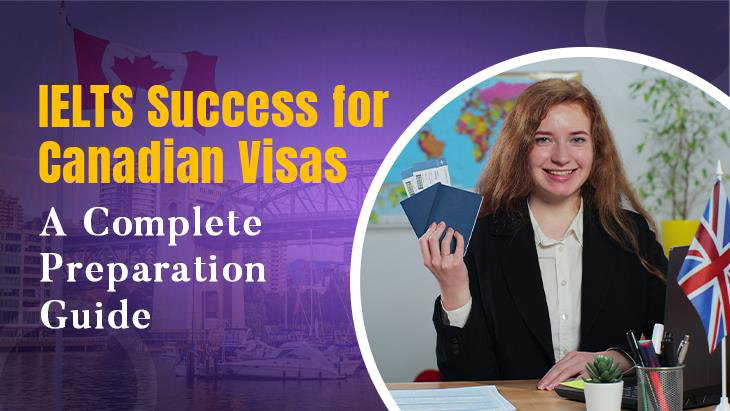Applying for a Canadian visa often requires demonstrating English proficiency, with the IELTS test (International English Language Testing System) being one of the preferred assessments by the Canadian government. Here’s a guide to help you prepare effectively and achieve your desired score.
1. Understand the Test Format
IELTS assesses four skills: Listening, Reading, Writing, and Speaking. Familiarise yourself with each section:
- Listening: 30 minutes with 40 questions.
- Reading: 60 minutes with 40 questions.
- Writing: 60 minutes for two tasks.
- Speaking: 11–14 minutes in a face-to-face interview format.
Practising under timed conditions will help you get comfortable with the test structure.
2. Set Your Target Score
Different Canadian immigration programs (such as Express Entry) require specific IELTS score bands. Identifying the score you need for your visa category will help you tailor your preparation and avoid unnecessary stress.
3. Gather Quality Study Materials
Using trusted resources is key to efficient preparation. Look for:
- Official IELTS practice books and online materials.
- Apps or websites offering sample questions and tips.
- IELTS Prep courses or tutoring if you need additional guidance.
4. Practice Regularly
Consistency is critical in IELTS preparation. Set a daily or weekly schedule to focus on each section. Here’s a suggested approach:
- Listening: Watch English videos, take notes, and complete practice tests.
- Reading: Read English newspapers, magazines, or online articles to boost reading speed and comprehension.
- Writing: Practice Task 1 (summarising data) and Task 2 (essay writing) within the time limits.
- Speaking: Engage in conversations, record yourself speaking, or practice with a friend or tutor.
5. Build Vocabulary and Grammar Skills
Strong vocabulary and grammar enhance all four test sections. Read widely, write down new words, and practice using them in sentences. Grammar exercises can help solidify accuracy in speaking and writing.
6. Take Full-Length Practice Tests
Simulate exam conditions with full-length tests to build stamina and ensure you know the timing and pacing. Review your answers, especially the incorrect ones, to improve continuously.
7. Focus on Weak Areas
Identify areas where you struggle the most and invest extra time in them. For example, try listening to diverse accents and fast-paced conversations if listening is challenging.
8. Get Feedback
Seek feedback on your speaking and writing tasks, ideally from someone experienced in IELTS. Constructive criticism helps you understand what examiners look for and where you need improvement.
9. Prepare for Test Day
- Get adequate sleep the night before.
- Arrive early at the test centre to stay calm and focused.
- Bring necessary identification and stay hydrated for a clear mind.
10. Stay Positive and Confident
Confidence can make a difference. Trust your preparation, and stay positive throughout the process.














Post Comments